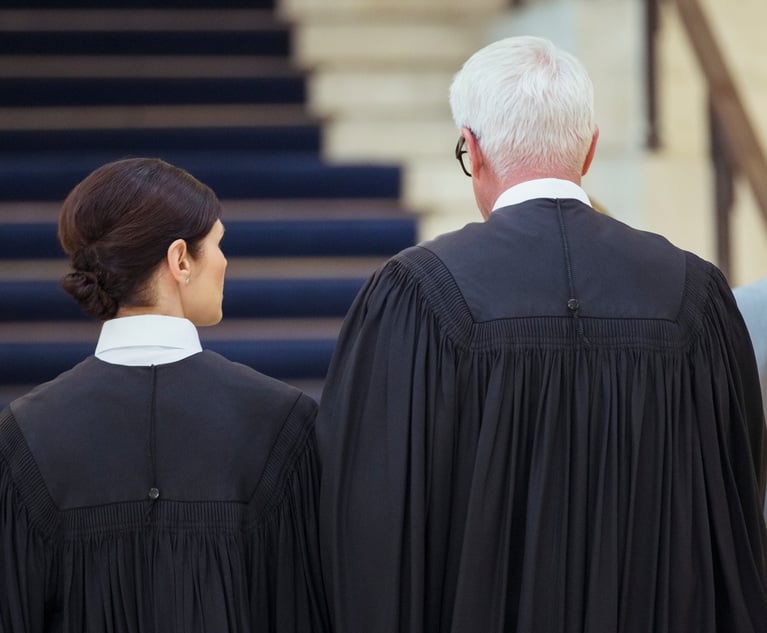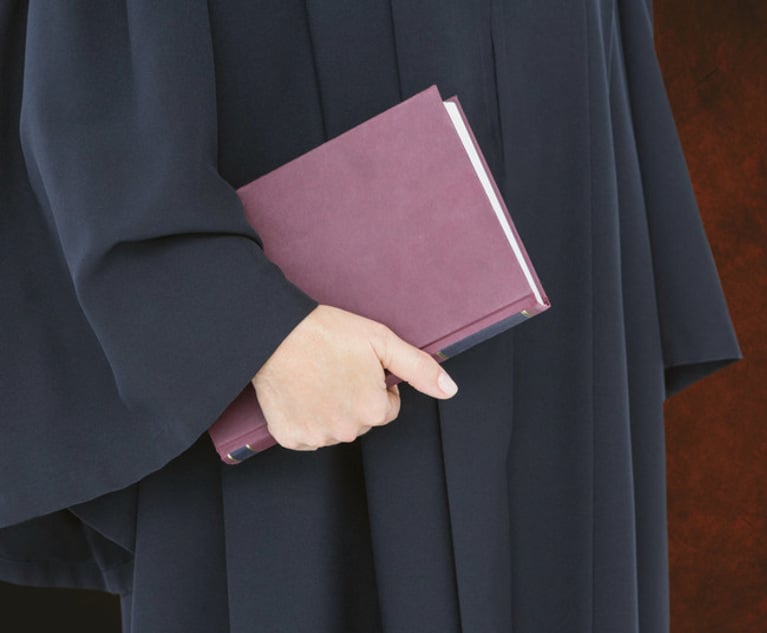 Elbert P. Tuttle U.S. Court of Appeals Building
Elbert P. Tuttle U.S. Court of Appeals Building11th Circuit Wrestles With Release of Alabama Execution Details
The panel of judges grilled the lawyer for the state, but one judge cautioned the lawyer for the news media not to take the harsh questioning of the state as an indication that her side had a leg up.
November 05, 2018 at 05:37 PM
4 minute read
A federal appeals court is considering whether a lower court judge was wrong to rule that Alabama's execution protocol should be unsealed at the request of news outlets.
U.S. District Judge Karon Bowdre ruled in May that the public has “a common law right of access” to a redacted version of the state's lethal injection protocol and related court records. The state appealed, and a three-judge panel of the 11th U.S. Circuit Court of Appeals in Atlanta on Monday heard arguments in the appeal.
The Associated Press, The Montgomery Advertiser and the Alabama Media Group had asked the court in March to unseal records in a lawsuit brought by death row inmate Doyle Lee Hamm. Alabama prison officials in February halted Hamm's scheduled execution at the last minute when the lethal injection team was unable to connect an intravenous line to his veins. Alabama has for years refused to release the details of its execution process and where it gets the drugs used in lethal injections.
The public has a great interest in understanding how Alabama carries out executions and the unsealing of the documents would likely “promote understanding of a historically significant event,” Bowdre wrote in a 19-page memorandum ordering the release of the records. She wrote that the state could keep secret some information, like the names of low-level prison employees involved in executions.
Hamm's attorneys had sued to block his execution, saying his veins were so damaged by lymphoma, hepatitis and past drug use that it would be extremely difficult to execute him. As part of that litigation, the state provided Hamm's attorneys with a redacted copy of the execution protocol after securing a protective order from the judge to keep it confidential.
Stephen Frisby, a lawyer for the state argued in court that while the execution protocol was provided to Hamm's attorneys and the judge, it was never attached to a filing in the case and therefore shouldn't be considered a judicial record that is subject to release.
Bowdre had concluded in her order that it was a judicial record because she “needed and relied upon” that document to decide Hamm's case. The reason it wasn't formally filed is because the parties and the court were rushing to address Hamm's claim before his scheduled execution date, she wrote.
Frisby argued that even if the execution protocol is subject to the common-law right of access, the state's interest in keeping it secret for security reasons outweighs the interest of news outlets to access it.
Catherine Martinez, representing the news outlets, acknowledged that the state has legitimate security interests but argued that redactions can eliminate that problem. The balancing test between the parties' interests starts with the presumption that judicial records are open to the public, she said.
Frisby also argued that the news outlets shouldn't have been allowed to intervene in Hamm's case because they waited until the case had been dismissed. But Martinez noted that their motion was filed the same day that the case was dismissed and that the court's jurisdiction over a sealing order extends beyond the end of the case.
The panel of judges grilled Frisby, repeatedly asking why an execution protocol should be exempt from release and whether the public is entitled to know what the judge considers when deciding a case.
But Judge Gerald Tjoflat cautioned Martinez not to take the harsh questioning of the state as an indication that her side had a leg up. The judges asked Martinez about the timing of the new outlets' motion to intervene in the case and the balancing test judges use to determine whether to unseal documents.
NOT FOR REPRINT
© 2025 ALM Global, LLC, All Rights Reserved. Request academic re-use from www.copyright.com. All other uses, submit a request to [email protected]. For more information visit Asset & Logo Licensing.
You Might Like
View All
Spalding Jurors Return $12M Verdict Against State Farm Insurance Client
10 minute read

Trending Stories
- 1Courts, Lawyers Press On With Business as SoCal Wildfires Rage
- 2Florida, a Political Epicenter, Is the Site of Brownstein Hyatt's 13th Office
- 3Law Firms Close Southern California Offices Amid Devastating Wildfires
- 4Lawsuit alleges racial and gender discrimination led to an Air Force contractor's death at California airfield
- 5Holland & Knight Picks Up 8 Private Wealth Lawyers in Los Angeles
Who Got The Work
Michael G. Bongiorno, Andrew Scott Dulberg and Elizabeth E. Driscoll from Wilmer Cutler Pickering Hale and Dorr have stepped in to represent Symbotic Inc., an A.I.-enabled technology platform that focuses on increasing supply chain efficiency, and other defendants in a pending shareholder derivative lawsuit. The case, filed Oct. 2 in Massachusetts District Court by the Brown Law Firm on behalf of Stephen Austen, accuses certain officers and directors of misleading investors in regard to Symbotic's potential for margin growth by failing to disclose that the company was not equipped to timely deploy its systems or manage expenses through project delays. The case, assigned to U.S. District Judge Nathaniel M. Gorton, is 1:24-cv-12522, Austen v. Cohen et al.
Who Got The Work
Edmund Polubinski and Marie Killmond of Davis Polk & Wardwell have entered appearances for data platform software development company MongoDB and other defendants in a pending shareholder derivative lawsuit. The action, filed Oct. 7 in New York Southern District Court by the Brown Law Firm, accuses the company's directors and/or officers of falsely expressing confidence in the company’s restructuring of its sales incentive plan and downplaying the severity of decreases in its upfront commitments. The case is 1:24-cv-07594, Roy v. Ittycheria et al.
Who Got The Work
Amy O. Bruchs and Kurt F. Ellison of Michael Best & Friedrich have entered appearances for Epic Systems Corp. in a pending employment discrimination lawsuit. The suit was filed Sept. 7 in Wisconsin Western District Court by Levine Eisberner LLC and Siri & Glimstad on behalf of a project manager who claims that he was wrongfully terminated after applying for a religious exemption to the defendant's COVID-19 vaccine mandate. The case, assigned to U.S. Magistrate Judge Anita Marie Boor, is 3:24-cv-00630, Secker, Nathan v. Epic Systems Corporation.
Who Got The Work
David X. Sullivan, Thomas J. Finn and Gregory A. Hall from McCarter & English have entered appearances for Sunrun Installation Services in a pending civil rights lawsuit. The complaint was filed Sept. 4 in Connecticut District Court by attorney Robert M. Berke on behalf of former employee George Edward Steins, who was arrested and charged with employing an unregistered home improvement salesperson. The complaint alleges that had Sunrun informed the Connecticut Department of Consumer Protection that the plaintiff's employment had ended in 2017 and that he no longer held Sunrun's home improvement contractor license, he would not have been hit with charges, which were dismissed in May 2024. The case, assigned to U.S. District Judge Jeffrey A. Meyer, is 3:24-cv-01423, Steins v. Sunrun, Inc. et al.
Who Got The Work
Greenberg Traurig shareholder Joshua L. Raskin has entered an appearance for boohoo.com UK Ltd. in a pending patent infringement lawsuit. The suit, filed Sept. 3 in Texas Eastern District Court by Rozier Hardt McDonough on behalf of Alto Dynamics, asserts five patents related to an online shopping platform. The case, assigned to U.S. District Judge Rodney Gilstrap, is 2:24-cv-00719, Alto Dynamics, LLC v. boohoo.com UK Limited.
Featured Firms
Law Offices of Gary Martin Hays & Associates, P.C.
(470) 294-1674
Law Offices of Mark E. Salomone
(857) 444-6468
Smith & Hassler
(713) 739-1250







